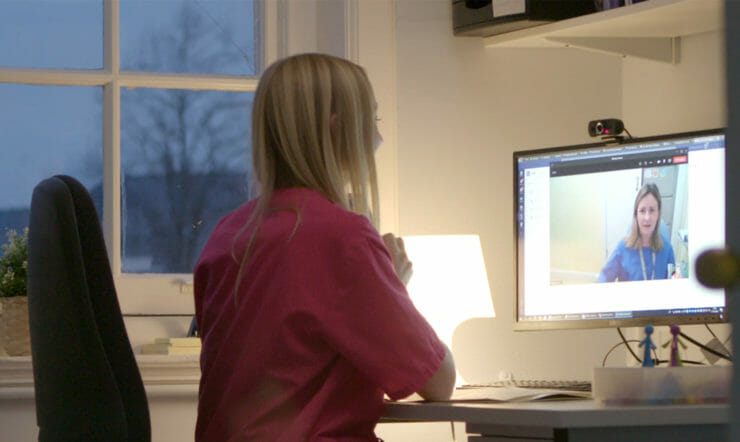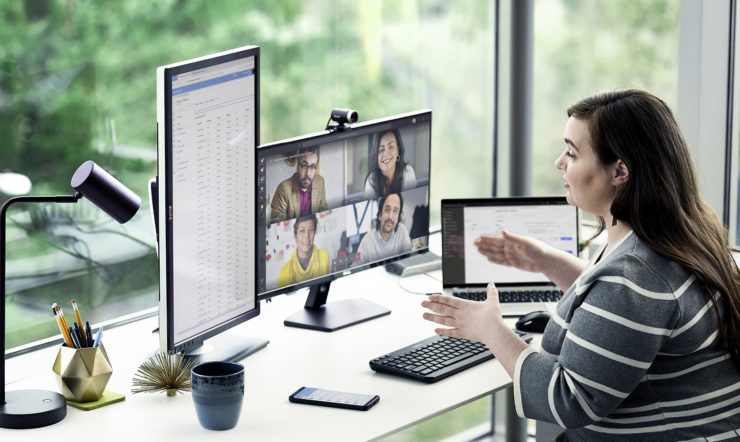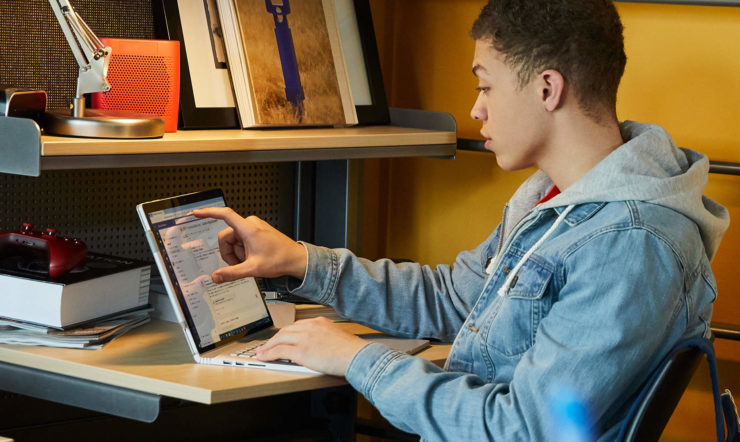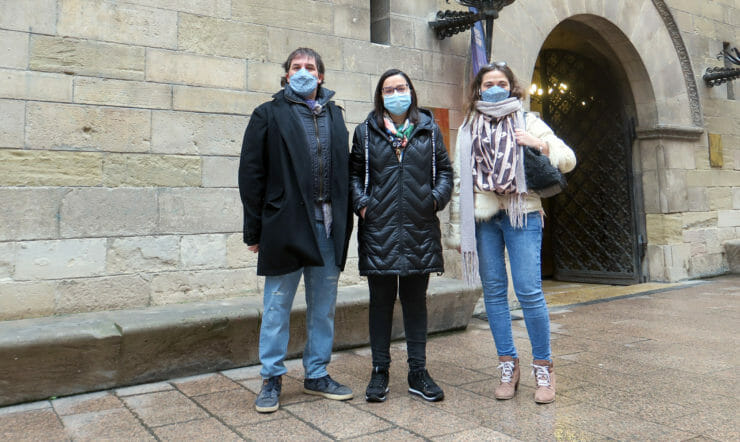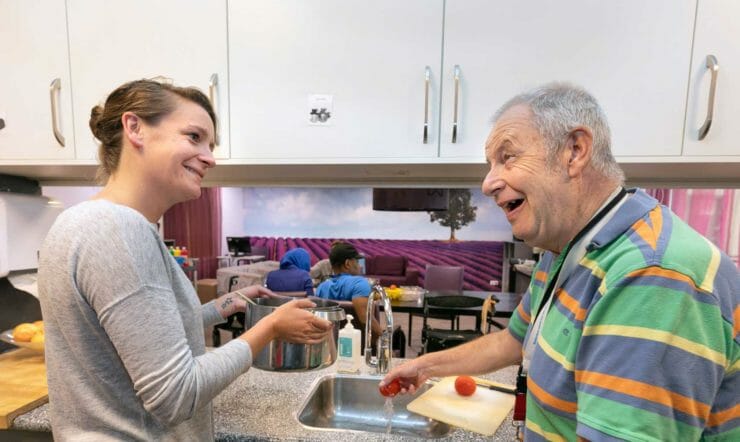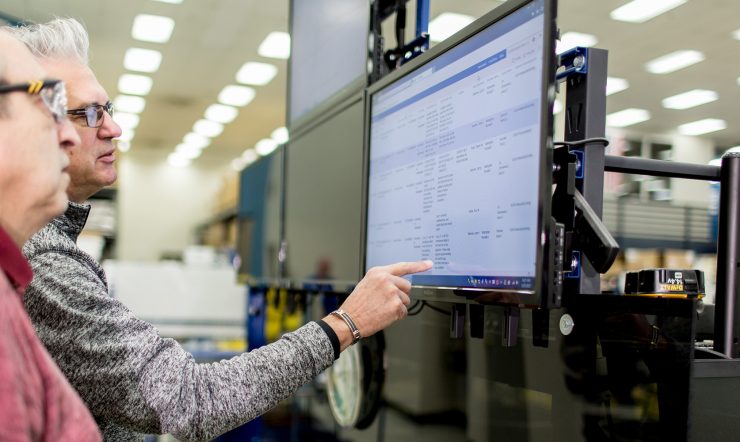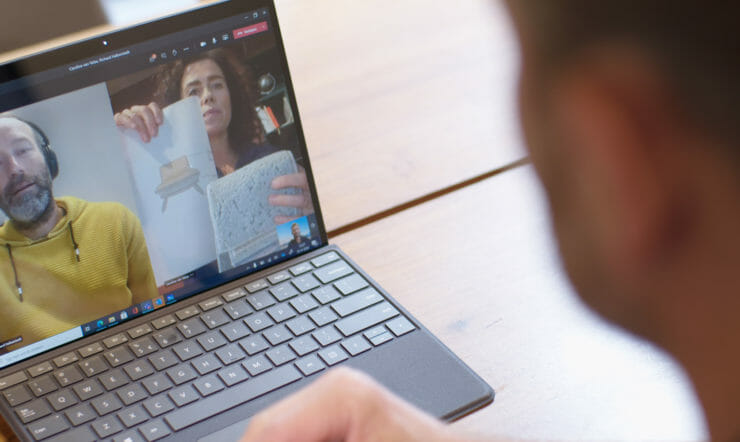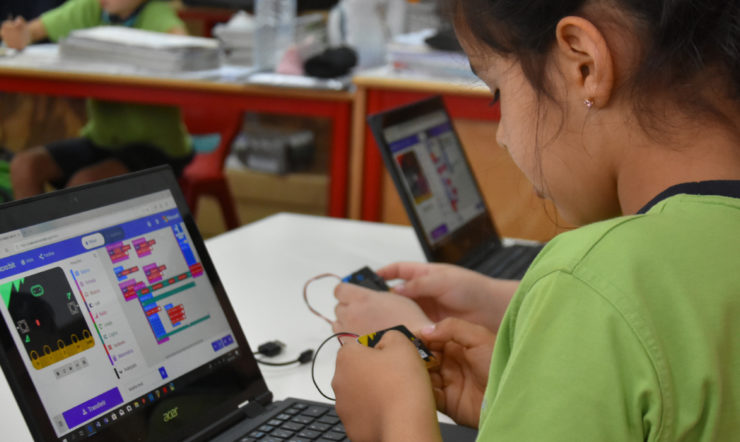For many organizations, social-distancing measures brought about by COVID-19 have drastically slowed day-to-day operations – and for some, even stopped them altogether. But for local governments across Europe, like the Belgian city of Liège, slowing down hasn’t been an option.
From supporting citizens and businesses to protecting frontline workers, Liège city had to quickly provide stability during this crisis and ensure important decisions could still be made in a democratic way. Not easy when elected officials can’t safely meet in the same room together, but a challenge the city swiftly adapted to with a secure video-conferencing solution.
“When we saw the increasing impact of COVID-19, the regional government made a special decision to allow council voting to happen over video conference,” recalls Benoit Joseph, CIO for Liège city. “By law, these meetings always had to be in person, so it was a big step for our administration.”
With remote-working-ready tools put in place by the administration some years earlier, the city already had a trusted and secure way to continue governing without breaking social distancing rules. But with only a small number of councillors familiar with this way of working, it was up to Joseph and his team to help everyone quickly adapt and make sure legal regulations were met.
“Everyone was in a rush to use these tools and get things done, which was great – but it was important they thought about what data they were sharing too.”
Balancing modern and traditional values
Situated in the southern French-speaking region of Wallonia, Liège is the third biggest city in Belgium with a population of nearly 200,000.
With a wide demographic of cultures and nationalities, the city values an open and transparent relationship with its citizens – running public forums throughout the year and funding projects that help support the many social events the city is known for.
Within the council walls however, the city laws keep things more traditional.
“By law, our elected officials have to all physically meet at least ten times a year,” explains Joseph. “The council’s decisions still need to be signed by hand so we have a paper copy on file, but where we can we’ve gone paperless and are using technology to help simplify these processes.”
Liège city started a digital transformation in 2013 with a move to Microsoft 365 – initially to implement a centralized email and calendar server for the whole administration, but over the years more tools have been added such as Microsoft OneDrive and Microsoft Teams to help council members collaborate more efficiently.
“In 2019 we started testing how Teams could help us interact with other sectors, like childcare and police,” he says. “We created groups to manage ongoing projects and share updates and information securely. This suited us much better than emails for security, as you can easily control who can view and edit these documents.”
“My challenge then was encouraging more people to start using Teams, but then everything changed – now everyone’s using it, and it’s my job to make sure they’re doing it safely.”
An unprecedented move to video conferencing
In March 2020, COVID-19 was officially confirmed in Belgium and national social–distancing measures were put in place. An act that prompted the Wallonia regional government to make a historical decision for council meetings to be held over video conference rather than in person.
“Council meetings had to always be physical by law, but this special decision meant that for the first time we could do them remotely,” says Joseph. “We were not ready for this, but the technology was – so we quickly put a team in place to roll out Microsoft Teams and offer support where it was needed.
“Another problem was that some council members still wanted to use meeting rooms,” he adds. “City hall didn’t have the right hardware to conference with other councillors remotely, so we had to work quickly to set up a system using personnel computers and headphones combined with the audio system we had installed already. We were in a hurry to get everything in place and it was a little tricky at first, but soon everyone found it quite easy to attend these meetings.”
It wasn’t long before all 1,500 employees across Liège city had been set-up on Microsoft Teams, ensuring that essential meetings could still be held in a secure and regulated manner during the country’s COVID-19 lockdown.
“These remote meetings are not so different to our physical assemblies,” says Joseph. “People ask and answer questions, and because you can see who’s speaking the rules of council are still respected.
“We’d previously made sure that Teams met our security regulations, so councillors could discuss sensitive information and also share their screen to present slides like they would have in person.
“In some ways everything changed, but at the same time it stayed exactly the same.”
Keeping to rules and regulations
Like any body of government, Liège city have to follow strict regulations that ensure decisions are made fairly and democratically. A practise that is still respected since moving to a remote-working environment.
“It was really important we followed the rules from a legal perspective,” explains Joseph. “For security, we made it mandatory to log–in with Microsoft credentials, so we knew who was present at any meeting and could also be more restrictive about who is allowed to attend.
“The general director had an important part to play in this – they would be somebody who is not political and above the council, making them responsible to oversee all decision making. With Teams, they could easily review the meeting minutes and make sure everything was conducted fairly.”
“We’ve also been using Microsoft Forms to hold votes during the lockdown,” he adds. “We have to be anonymous to respect regulations, but by using Microsoft Forms everyone can vote in confidence from home and only the general director has access to the results.”

Understanding the need for technology
Looking back over the past few months, Joseph can’t imagine going back to life before using Microsoft Teams, and thinks everyone is already seeing the potential these tools can offer the city in the future.
“Going forward, we can use Teams for some of our operational meetings to avoid travelling between different offices across Liège,” he says. “It could save an hour easily in travel time, and for people like the general director, it can really make their week more efficient.
“We also regularly have meetings with people from other cities or countries like France and the Netherlands. It would be great to have a dedicated room at city hall with hardware set-up to meet both physically and remotely for these important meetings – and with colleagues from home as well.”
While no-one could have predicted the events of COVID-19, Liège city’s investment in technology has helped them effectively navigate a challenging time for any local government – showing the essential need for CIO’s like Joseph to keep organisations always looking towards the future.
